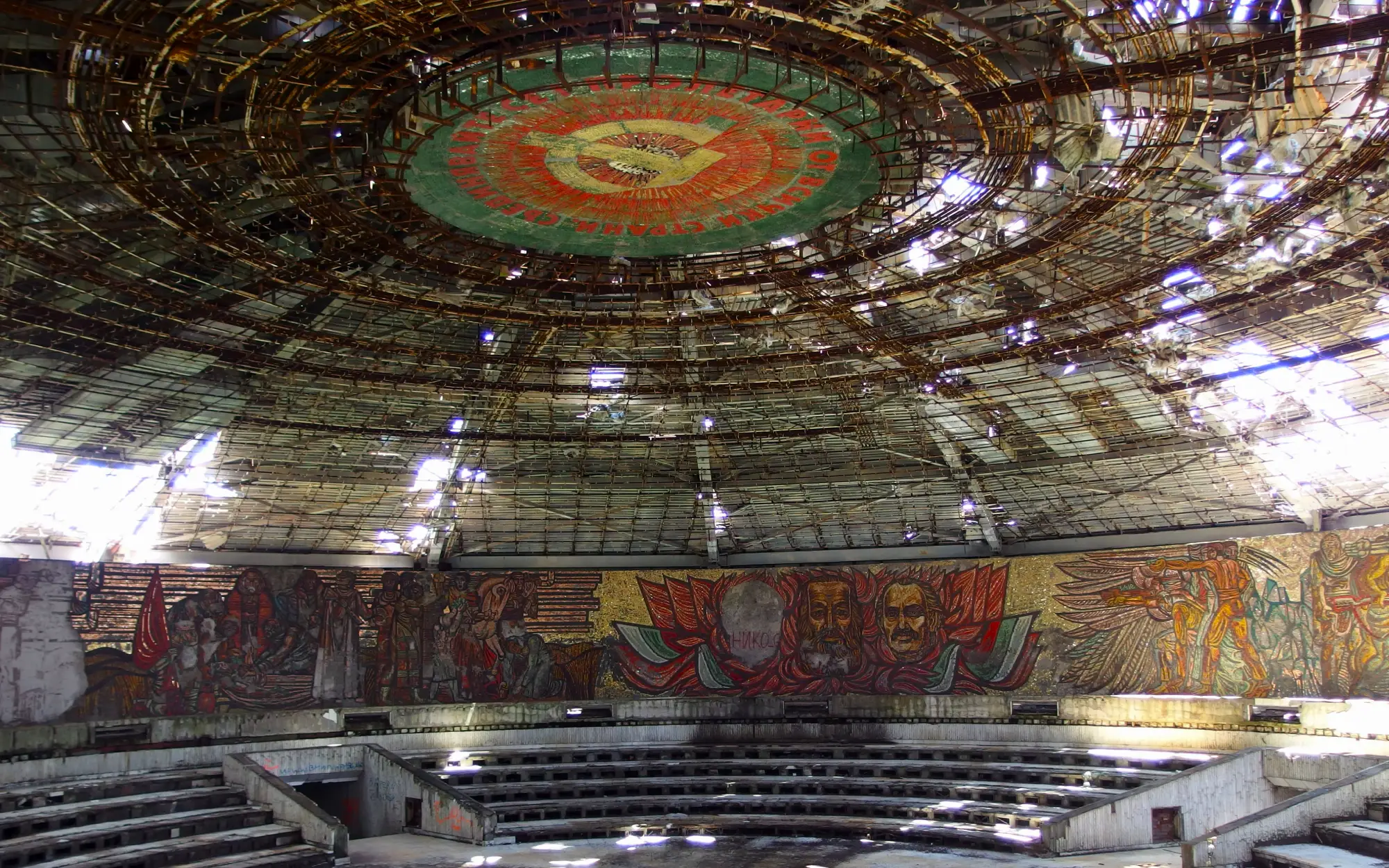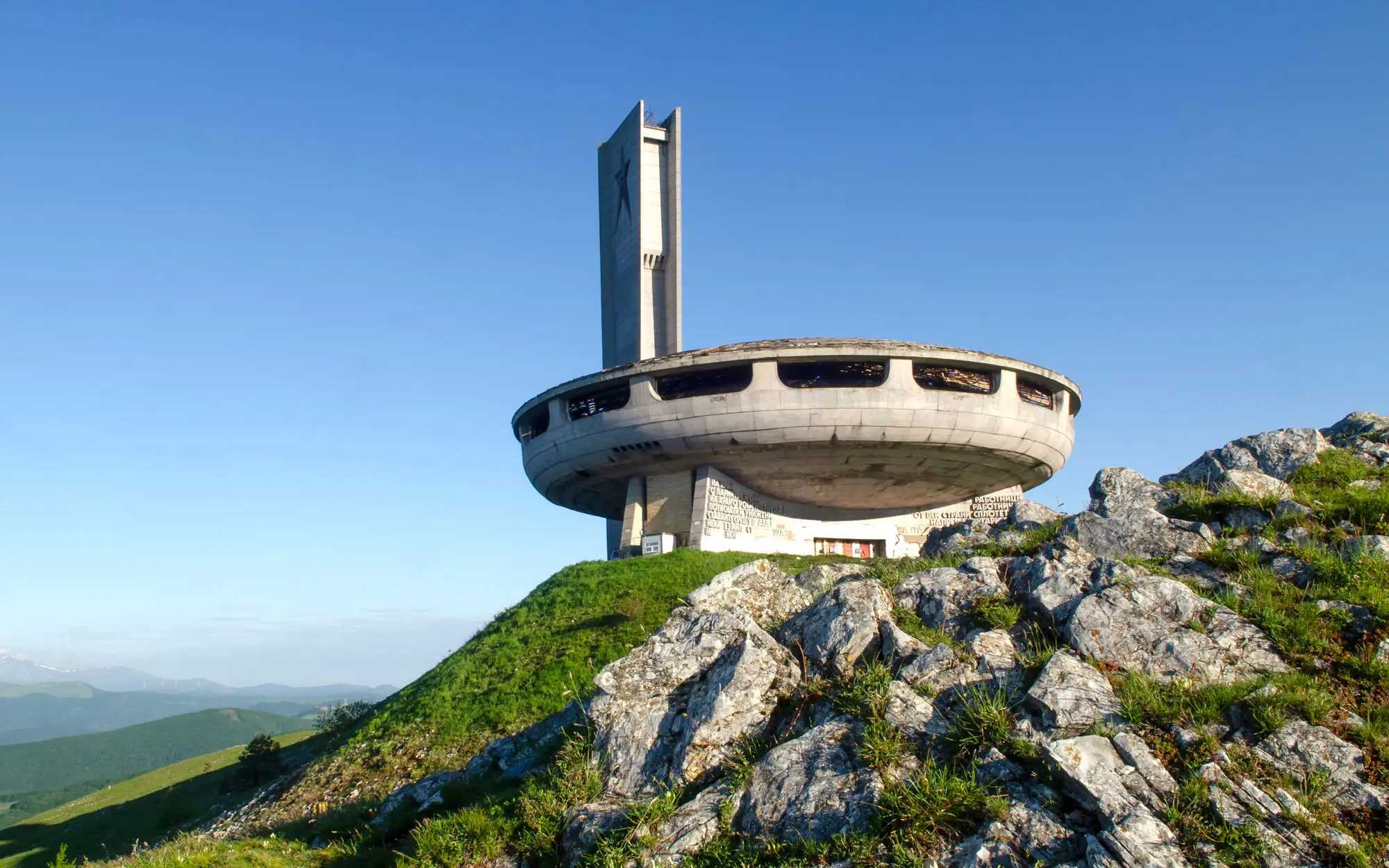
Buzludzha, a Bulgaria's monument to a forgotten era
Located in the Balkan Mountains of Bulgaria, the Buzludzha Monument is an imposing structure that has captured the imagination of visitors from around the world. Built in the 1970s as a symbol of Bulgaria's communist regime, this now-abandoned building is a striking example of socialist-era architecture and ideology. Despite its derelict state, Buzludzha continues to fascinate with its unique design, historical significance, and the eerie beauty of its decay.
Buzludzha's architecture is a testament to the grand ambitions of its creators. Designed by architect Georgi Stoilov, it resembles a flying saucer perched on a high mountain pedestal, symbolizing the technological advancement and futuristic optimism of the communist era. The building's exterior is dominated by a large tower with a red star, a feature prominently visible across the region, signifying the power and reach of the communist ideology.
The interior of the Buzludzha Monument, now largely decayed and vandalized, once boasted impressive mosaics, grand marble halls, and intricate artwork depicting scenes from Bulgarian and socialist history. These artworks were not only of high artistic value but also served as propaganda tools, illustrating the perceived virtues and achievements of communism.
The location of Buzludzha is historically significant as it was the site of the Buzludzha Congress of 1891, where socialist groups laid the foundation for the Bulgarian Communist Party. The monument was built to commemorate this event and served as a gathering place for the communist elite. After the fall of communism in Bulgaria, the monument was abandoned and left to the elements, reflecting the country's shift away from its socialist past.
Today, Buzludzha stands as a symbol of the rapid political and social changes that swept through Bulgaria and Eastern Europe in the late 20th century. It serves as a poignant reminder of the country's communist era, evoking mixed feelings among locals and visitors alike. For some, it's a relic of a repressive regime, while for others, it's a nostalgic reminder of a bygone era.
Buzludzha, an architectural enigma perched atop the Balkan Mountains, stands as a ghostly reminder of Bulgaria's communist past, a frozen echo of a bygone political era.

Buzludzha is one of the largest ideological monuments erected in Bulgaria.
The mystique of Buzludzha has made it a popular destination for urban explorers, photographers, and tourists intrigued by its history and architecture. Its remote location and dilapidated state offer a unique exploration experience, although it's essential to be cautious due to the building's deteriorating condition.
There have been various initiatives and discussions around preserving Buzludzha and repurposing it as a museum or cultural center. These efforts highlight the monument's architectural significance and the need to preserve it as a historical landmark, representing a critical period in Bulgaria's past.
For those planning to visit, it's important to check the current status of access to the building. The journey to Buzludzha is also part of the experience, offering scenic views of the Balkan Mountains. The monument is most accessible during the warmer months, as the area can be prone to harsh weather conditions in winter.
The region around Buzludzha offers additional attractions, including hiking in the Balkan Mountains and exploring nearby towns and historical sites, which reflect the rich cultural heritage of Bulgaria.
Buzludzha is more than just a decaying monument; it's a powerful symbol of history, a subject of architectural fascination, and a witness to the passage of time. It stands as a silent observer of the changes that have reshaped Bulgaria, holding within its walls stories of a past era, waiting to be rediscovered and understood. For those visiting Bulgaria, a trip to Buzludzha offers a unique window into the country's complex history and an opportunity to reflect on the ephemeral nature of political power and ideology.
Welcome to Bulgaria!
Another interest sights
Bulgaria
The impressive frescoes of Ivanovo Rock Churches, a striking art work from medieval Bulgaria
Bulgaria
Rila Monastery, a spiritual jewel in the heart of Bulgaria
Romania
Bran Castle, the inspiration of Bram Stoker
Turkey
The huge Byzantine architectural masterpiece of Hagia Sophia
Romania
Viscri Fortified Church, a bastion of Saxon heritage
Greece
Meteora, the impressive monasteries built on rocky cliffs
Albania
Krujë, a historical tapestry woven in the Albanian mountains
Albania
Share this Sight with: